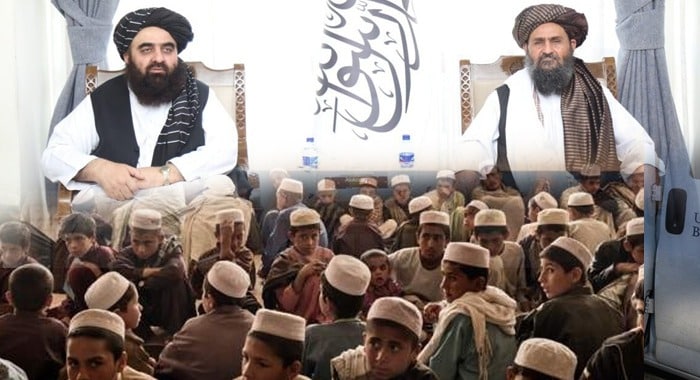Taliban Supreme Leader Hibatullah Akhundzada has directed the allocation of $9 million from Afghanistan’s new fiscal budget to religious seminaries in Pakistan, according to a source close to the Taliban leadership who spoke to Afghanistan International.
The funds have reportedly been earmarked for madrasas located in Pakistan’s border provinces of Balochistan, Sindh, and Punjab. The decision was made despite Afghanistan’s ongoing financial crisis, which has led the Taliban administration to enforce sweeping austerity measures, including a 12 percent reduction in ministerial staff and the suspension of pension payments to retirees—steps that have fueled public frustration.
According to the source, Akhundzada personally instructed Acting Finance Minister Mohammad Nasir Akhund and Central Bank Governor Noor Ahmad Agha to ensure the allocation is carried out. While the Taliban recently approved the 1403 (2024/25) national budget, they have not disclosed its total value. For context, the 1401 (2022/23) budget amounted to 231 billion Afghanis, of which 203 billion were designated for operational expenses and 27.9 billion for development.
The allocation to Pakistani madrasas reflects the Taliban’s longstanding ideological ties with these institutions, many of which have historically educated key members of the movement. Taliban leaders frequently visit these seminaries and maintain strong relationships with their administrators, with many of these religious schools continuing to serve as vital recruitment grounds.
Observers have noted that the decision could have indirect implications for regional security, as numerous Taliban members and fighters from Tehrik-i-Taliban Pakistan (TTP) are believed to have studied at the same seminaries. The financial support may, according to analysts, be viewed as an extension of ideological and logistical backing to elements aligned with the Afghan Taliban.
The move comes amid deepening economic, political, and humanitarian crises in Afghanistan. The United Nations estimates that 23 million Afghans currently require humanitarian aid, with the World Food Programme last year delivering emergency food and cash assistance to nearly 12 million people, prioritising women and girls suffering from acute hunger.





